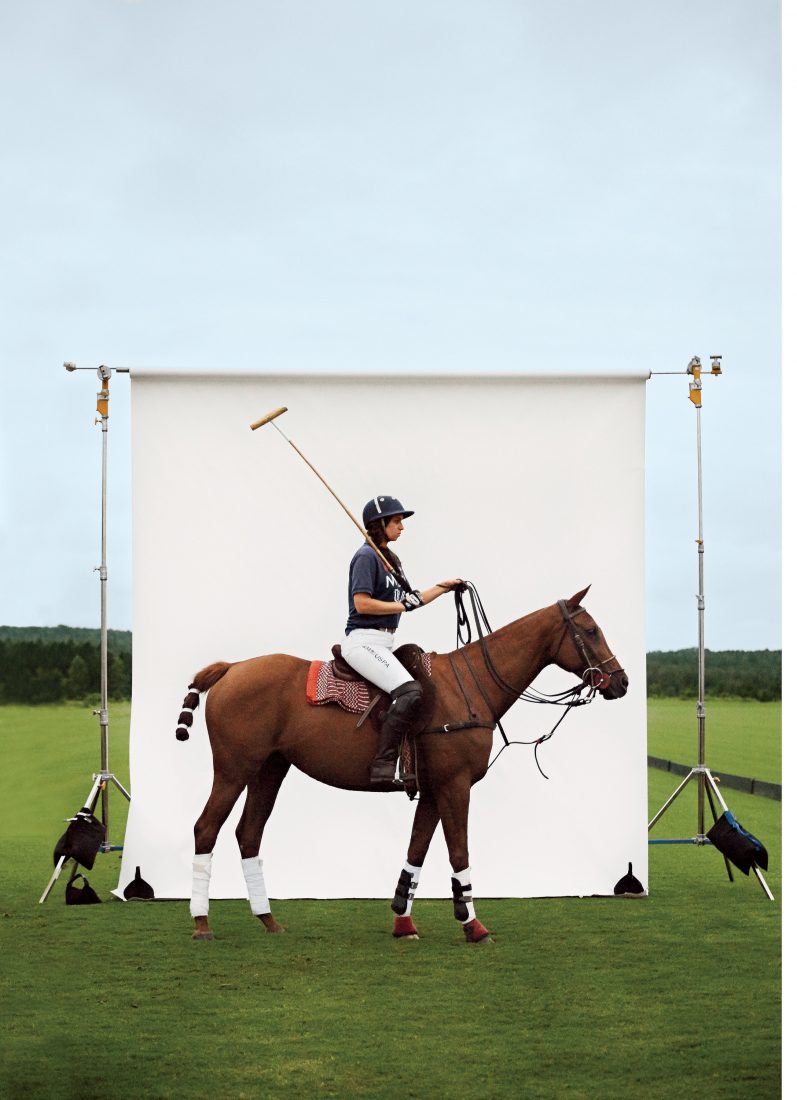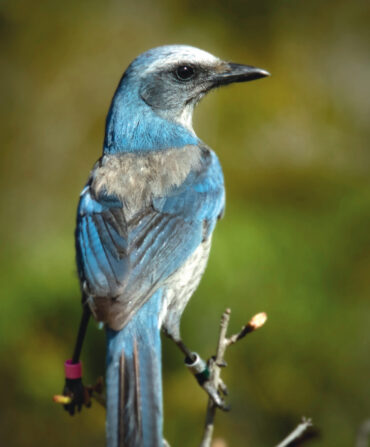Polo—the so-called sport of kings—has traditionally been viewed as a masculine endeavor. It is fast (the horses reach speeds of up to forty miles per hour) and dangerous (bumps, spills, and injuries are all part of the game). And the most famous polo players in the world are men—think Nacho Figueras, the camera-friendly Argentine who moonlights as a Ralph Lauren model, and Princes William and Harry.
But if you happen to catch a polo match when high season kicks off this winter in Wellington, Florida, home to this country’s most prestigious tournaments, keep an eye out for a different kind of player. Look carefully, though: A long ponytail is one of the few ways to differentiate Cristina Fernandez from her peers. “I play tournaments all the time when I don’t even realize I’m the only woman on the field,” she says.
Fernandez, a twenty-eight-year-old professional polo player who lives in Aiken, South Carolina, is one of the most promising American up-and-comers in the game today, and a leader among a growing number of women in the sport. Though polo is one of the few sports that are coed at the pro level—the horse is the great equalizer, often enabling women to outride and outmaneuver their stronger male counterparts—female players were traditionally few and far between and rarely taken seriously. Prior to the early 1970s, women couldn’t even register with the United States Polo Association (USPA). Things have been changing, however, as women such as Fernandez have risen to prominence. According to the USPA, there has been a 300 percent increase in female players since 1990. Today, 37 percent of USPA members are women. “It never occurred to me that playing with men was something I couldn’t do,” Fernandez says.

Sully Sullivan
Joy Ride
Fernandez spends the fall in Aiken before heading to Wellington, Florida, for this winter season.
Though she grew up around the sport in Maryland and Virginia (both of her parents play), Fernandez didn’t take to polo early on. Instead, music was her passion. (At twelve, she sang for an audience that included President Bill Clinton.) That changed when she attended high school at the all-girls Garrison Forest School in Owings Mills, Maryland. “You got a PE credit for polo, so I thought, ‘Why not?’” she says. It turned out she had a natural aptitude for the game, with strong riding skills and an unusually powerful swing that allowed her to strike goals from impressive distances. Later, at the University of Virginia, Fernandez became a collegiate all-star and the captain of the team. In her senior year, she scored the winning points in the national championship.
That win spurred her on to her current path. “I decided then that I was going to try to be a professional polo player and see where it went,” she says. As it happened, the next year the USPA created a developmental team for fledgling polo professionals (called Team USPA), providing coaching, mentoring, and some invaluable networking opportunities. Fernandez was one of five women chosen for the inaugural team of twenty-four. “It’s opened a lot of doors,” she says.
Fernandez has a polo sponsor in Canada for whom she works year-round, and plays on a circuit that has her in Toronto in the summer, Aiken in the fall and spring, and Wellington in the winter. In January, she will spend two weeks playing in India as part of Team USPA’s first international women’s team. She competes in both women-only and coed tournaments—to date she has taken part in more than twenty tournaments with men—and holds down the 2 or 3 spot (the polo equivalent of a soccer midfielder) in women’s polo and the 1 offensive position (similar to a forward) on a four-person coed team. Within the sport, she’s known both for her congeniality and easy smile off the pitch and her intense competitiveness on it. “I love the horses and the people in polo,” she says. “I also really like to win.”
Fernandez is quick to pay tribute to the female role models who helped pave the way for her success. First and foremost on that list, of course, is her mother, Theresa King. “My mom always played with men when I was growing up,” she says, including Fernandez’s father, Daniel, who is a professional player originally from Argentina. And then there’s Nina Clarkin, the Brit who is perhaps the best female player in the world right now. “Nina is my idol,” Fernandez says. “I first saw her on ESPN in Argentina, and later met her, and she made all of this seem so realistic.” Something Fernandez is now doing for a whole new generation of players.








